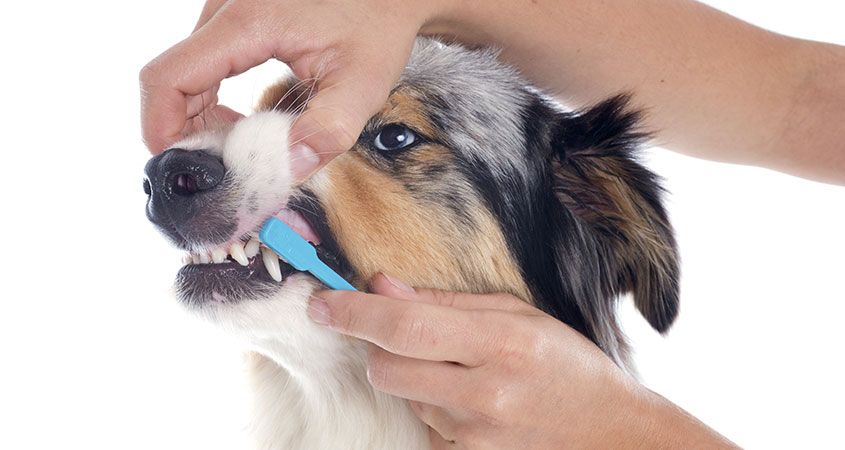As a dog owner, you want to do everything you can to make sure your beloved canine lives a long, healthy and happy life. In addition to regular vaccinations and visits to the vet, dental health is an important part of keeping your dog healthy. Without proper dental care, your dog is at risk of developing dental disease (a bacterial infection in the mouth) which can impact your dog’s overall health and well-being.
HOW TO TELL IF YOUR DOG HAS DENTAL DISEASE
Dog owners should keep an eye on their dog’s dental health, and luckily, it’s not hard to detect the signs of dental disease, which include:
- Bad breath
- Red or swollen gums
- Yellow, brown, loose or missing teeth
- Changes in appetite, trouble chewing, losing weight
While these symptoms may be worrying, there are things you can do at home to prevent your dog from developing dental disease or prevent their dental disease becoming worse.
HOW TO PREVENT DENTAL DISEASE
Even if your pet has started to exhibit these signs, there are things you can do at home that can even reverse dental disease if caught early enough.
First, make sure you’re brushing your dog’s teeth regularly to help reduce plaque, and be sure to use a toothpaste specifically for dogs. Your vet is a vital resource for preventing your dog’s dental disease and can provide regular dental cleanings to reduce bacteria and guard against periodontitis. There are special foods that have been developed to address dental disease that you can purchase at your local pet store, and chew toys are another good way to keep your dog’s teeth strong.
HOW PERIODONTAL DISEASE CAN AFFECT YOUR DOG
The dangers of periodontal disease go well beyond your dog’s mouth. While bad breath, gingivitis and tooth loss are all results of dental disease, it can also cause damage to the rest of your dog’s body. Dogs with periodontal disease are more likely to develop heart disease and other organ damage. Bacteria from the mouth can enter the bloodstream and attach to the arteries around the heart. Certain breeds, like King Charles spaniels, dachshunds and toy poodles may be more prone to dental disease, and owners of these breeds should be especially vigilant.
Both dogs and cats can be affected by dental disease, but Close Vet Clinic is here to help.

